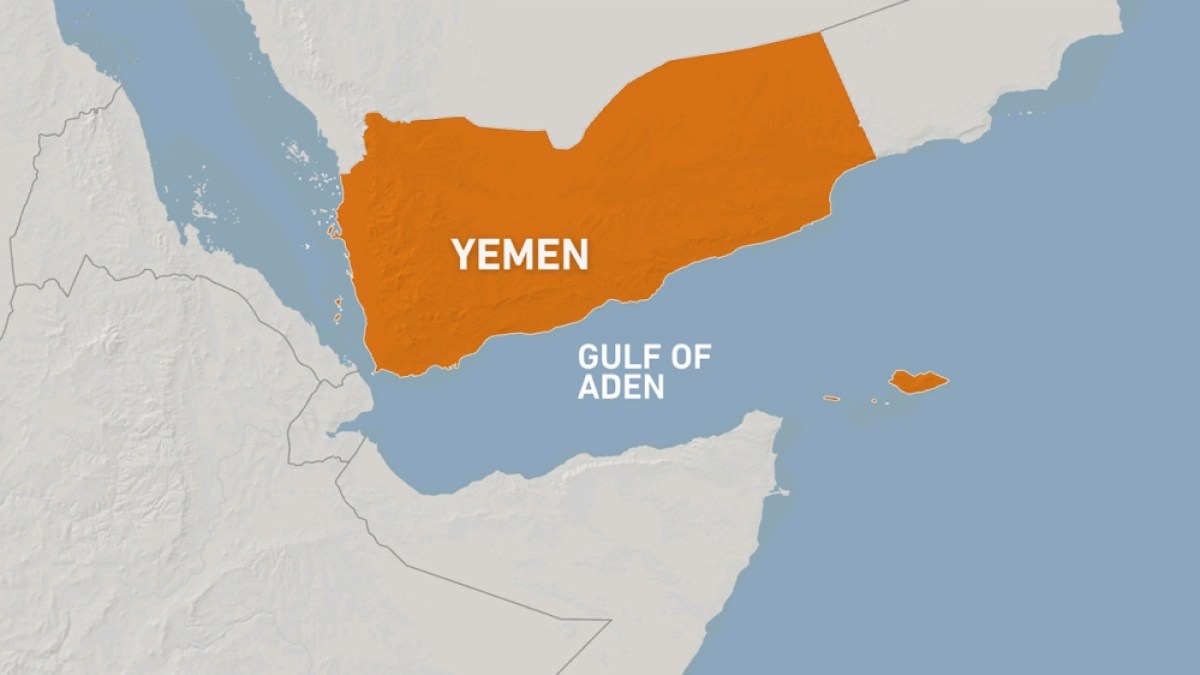Brussels, Belgium – The recent arrest of a Palestinian activist in Belgium has raised alarm as the organisation he works for describes the incident as “a form of state harassment”.
Mohammed Khatib, the 35-year-old European coordinator for Samidoun, a global Palestinian prisoner solidarity network, was arrested on April 21 after attending a daily protest demanding an end to Israel’s genocide against Palestinians in Gaza.
Every evening, dozens of people, some sporting keffiyehs, gather on the steps of the former stock exchange in Brussels to drape a Palestine flag down the steps and chant slogans of solidarity in English, Arabic and French.
A police presence is usual, but Khatib felt uneasy when he noticed an officer photographing him
He left about 7:30pm (17:30 GMT) and was stopped nearby for what he called a “spontaneous” ID check by local police.
He was arrested and taken in a police van to a central station. About 30 supporters gathered outside, chanting, “Free our comrade!” before being dispersed by riot police about 10pm (20:00 GMT).
Khatib was then transferred to a nearby station. He was questioned without a lawyer and released about 5am (03:00 GMT).
Khatib said he spent hours waiting in a cell before being asked for a few minutes about an incident in April 2024 during which he was attacked with a knife. There was also a brief trip to the hospital for nonurgent medication.
“They were doing anything they could to keep me,” Khatib told Al Jazeera.
The Brussels Public Prosecutor’s Office told Al Jazeera: “Mohammed Khatib was arrested as part of an investigation into events that took place in April 2024. He was released after questioning.”
Belgium’s tensions with pro-Palestine movement
A Palestinian refugee born in the Ein El Hilweh camp in Lebanon in 1990, Khatib fled to Belgium alone at age 19, claimed asylum and co-founded Samidoun one year later in 2011. Campaigning for the rights of Palestinians incarcerated in Israel is his sole occupation.
Samidoun’s stance on Israel-Palestine has led to Khatib being designated as a “serious” security threat by the Coordination Unit for Threat Analysis (CUTA), an independent body that reports to Belgium’s justice and interior ministries.
Khatib said officers on April 21 justified the arrest initially with the CUTA designation.
It marked the second time he has been arrested. In October 2023, he was arrested at a demonstration after refusing to stop waving a Palestine flag.
The latest detention was “nothing in terms of what we are facing”, he said, referring to efforts in some Western nations to curtail the pro-Palestine movement.
Samidoun called the arrest “a form of state harassment targeting a prominent leader, not only of Samidoun, but of the growing movement against the ongoing genocide in occupied Palestine”.
“It’s hard not to see it in that light,” refugee and immigration lawyer Benoit Dhondt told Al Jazeera. “A lot of people are living in a state of schizophrenia because of how invisible the genocide in Gaza is being made in Europe.”
Meanwhile, “disproportionate policing of the pro-Palestine movement makes it very difficult to understand what is actually happening,” he said.
The author and journalist David Cronin wrote in The Electronic Intifada: “If the Belgian authorities enjoy any success in muzzling Mohammed Khatib and Samidoun, then we have to ask: Who is next? All Palestine solidarity campaigners are at risk.”
In May last year, police used water cannon and tear gas to disperse a peaceful protest outside the Israeli embassy in Brussels under instructions from Mayor Boris Dillies, who said the demonstration was unauthorised. An open letter signed by Amnesty International described the measure as “contrary to international law”.
Earlier that month, police had arrested about 40 protesters when a demonstration at the US embassy went overtime.
In a report on the state of the right to protest published in July, Amnesty noted that administrative arrest “is increasingly used to prevent people from participating in protests” in Belgium.
Human rights and immigration lawyer Helene Crokart told Al Jazeera that arrests “are not isolated incidents” and “sometimes amount to outright intimidation”.
Samidoun, Khatib in the crosshairs
On October 15, then-State Secretary for Migration and Asylum Nicole De Moor, a Christian Democrat, announced a procedure to strip Khatib, who she called a “hate preacher”, of asylum.
“Even if someone has already been recognised as a refugee but that person turns out to be an extremist, recognition can be withdrawn,” she stated.
On the same day, the United States and Canada blacklisted Samidoun, deeming it a “sham charity” and accusing it of raising funds for the Popular Front for the Liberation of Palestine, a designated “terrorist” organisation.
Samidoun denied the allegation.
Germany banned Samidoun in 2023, alleging it celebrated the October 7, 2023, Hamas-led attacks in southern Israel. Khatib said, “Some Palestinians were distributing baklava in the street. And we were there with the Samidoun flag.”
Khatib has also been banned from entering Switzerland for 10 years, which occurs only when an individual poses what is considered a “concrete” threat to national security, according to a Swiss government spokesperson. He was not permitted to enter the Netherlands for a university talk in October.
During the October 2023 attacks, 1,139 people were killed and more than 200 were taken captive into Gaza. Since then, Israel’s latest war on Gaza has killed more than 52,000 people, including more than 17,000 children, in the besieged enclave. Israel has justified the onslaught as an attempt to crush Hamas.
According to a CUTA spokesperson, Samidoun is classified as an “extremist” organisation, which “is not a criminal offence”.
“We are more interested in keeping an eye on the leadership, the members, what they do and say, how they disrupt public order and what group they are potentially targeting,” the spokesperson said.
Belgium’s right-wing government, appointed in February, is markedly more sympathetic to Israel than its predecessor.
Prime Minister Bart De Wever of the New Flemish Alliance party said Belgium would not arrest Israeli Prime Minister Benjamin Netanyahu despite an International Criminal Court (ICC) warrant for his arrest on charges of crimes against humanity. Four months earlier, then-Liberal Premier Alexander De Croo stated the opposite.
The coalition headed by De Wever intends to “ban dangerous radical organisations such as Samidoun due to their ties to terrorism or for spreading antisemitism”, according to official documents.
But a ban would likely take a long time to implement because Belgian positions depend on European Union and United Nations Security Council decisions.
De Moor’s successor, Anneleen Van Bossuyt, supports the initiative to revoke Khatib’s refugee status. Such a decision is made independently by the commissioner general for refugees and stateless persons and must rely on proof of a serious crime.
A decision to strip someone’s status may be appealed, but once finalised, the immigration office could issue an order for a person to leave the country.
The case depends on material that authorities said they are not sharing, even with Khatib.
Dhondt warned of a “chilling effect” on freedom of expression.
The government is using Khatib’s case as a “propaganda tool” to demonstrate strong policies on “extremism”, he said, even though it “can’t really say why [Khatib poses any threat]”.
Khatib denies all allegations of hate speech.
“If they had something they could use against me, I would not be sitting here. I would be in prison.
“The goal of this intimidation is to silence the movement, to make an example of us and say, ‘If you do the same, this is your future’. We will fight this.”
‘Smear campaign’
Khatib has previously called for Israel to be “dismantled” and said, “We do not call Hamas’s attack in Israel a terror attack. We call it justified resistance.”
Seen as hardline positions by some, mainstream activists have distanced themselves from Samidoun but urged Brussels to uphold freedom of expression.
The Human Rights League, a nonprofit organisation that has criticised Belgian authorities for allowing the transit of arms to Israel, does not wholly endorse Khatib’s views but “reiterates the need to protect freedom of expression, including for statements that ‘offend, shock or disturb’, according to the European Court of Human Rights”.
“While the positions defended by Mohammed Khatib and Samidoun can undeniably be described as radical, … to our knowledge they have never been prosecuted for any criminal offence (including for anti-Semitic statements) nor have they caused any public disorder,” the rights group said in a 2024 report.
The group linked Khatib’s case to other measures, such as local bans on keffiyehs and other pro-Palestine symbols and the temporary suspension of decisions on Palestinian asylum applications. The report concluded that the lack of a decision on revoking Khatib’s refugee status suggests insufficient evidence against him.
The Union of Progressive Jews in Belgium last year denounced a “smear campaign” against Khatib.
“Whatever political differences we may have, this threat is intolerable and shakes the very foundations of our democracy.”

 3 months ago
148
3 months ago
148

















































